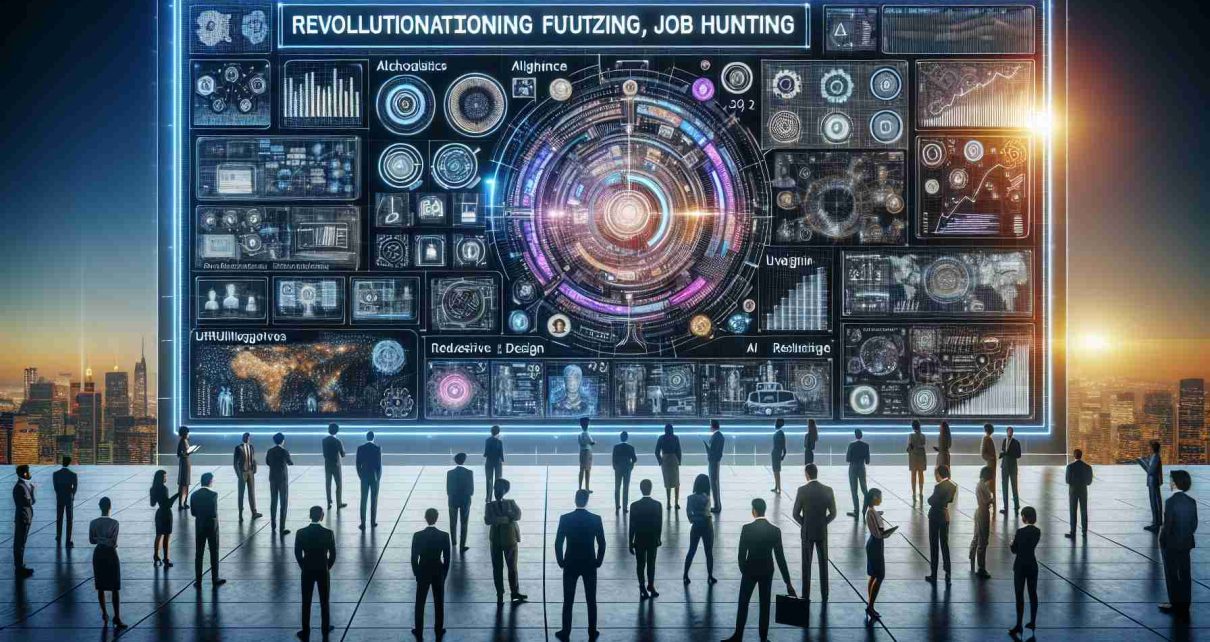Understanding Digital Transformation in Job Markets
In a groundbreaking study unveiled on January 16, Canva has illuminated the evolving landscape of job searching and recruitment as we approach 2025. The exploration, conducted across ten countries including Japan, emphasizes the significant role of artificial intelligence (AI), social media, and digital design in reshaping these processes.
In the Japanese job market, AI has become increasingly integrated, with 51% of job seekers utilizing it for resume creation. Additionally, a substantial 37% employ AI for visual elements of their resumes and portfolios, while 38% prepare for interviews using such technologies. On the other hand, a remarkable 86% of recruiters have incorporated AI into their hiring processes, with 31% using it for job descriptions and 28% summarizing resumes.
Furthermore, there is a noticeable shift in applicant preferences. Traditional, simplistic resumes are being replaced by vibrant, interactive application documents that capture attention. The trend is complemented by a rise in recruiters checking candidates’ social media profiles, demonstrating how candidates are leveraging these platforms to enhance their personal branding.
This research underscores a pivotal moment in the hiring landscape, where creativity and technology intersect, paving the way for more dynamic and effective recruitment strategies.
Implications of Digital Transformation on Job Markets
The rise of digital transformation in job markets, particularly through the integration of artificial intelligence and social media, is reshaping not only recruitment practices but also societal norms and cultural dynamics. As individuals increasingly rely on AI for crafting resumes and preparing for interviews, there is a push toward a more visually engaging and technologically savvy job application process. This shift fosters a culture where creativity is paramount, compelling applicants to present themselves through interactive platforms and digital portfolios.
Moreover, the reliance on social media for professional branding signifies a deeper societal trend towards personal visibility and narrative in professional spaces. This evolution enhances competition among candidates and influences the way employers perceive and evaluate potential hires. A new breed of job seeker must now balance traditional qualifications with an adeptness in digital presentation.
The implications extend to the global economy, as businesses are likely to prioritize tech-savvy candidates who can navigate this evolving landscape. This creates a demand for education and training programs focused on digital literacy and personal branding, potentially widening economic disparities based on access to technology.
Environmental considerations may also emerge as recruitment processes become digitized, reducing the carbon footprint associated with physical interviews and paper-based applications. Yet, this transition must be managed thoughtfully to avoid reinforcing systemic inequalities in tech access.
Ultimately, the long-term significance of these changes lies in the creation of a more interconnected, technologically dependent job market, where adaptability, innovation, and digital proficiency become essential skills for future generations.
Revolutionizing Recruitment: How Digital Transformation is Shaping Job Markets by 2025
Understanding Digital Transformation in Job Markets
As we look toward 2025, the job market is undergoing significant transformation driven by digital innovation. A recent study by Canva has shed light on the factors changing job searching and recruitment methods globally, with a particular focus on how artificial intelligence (AI), social media, and digital design are influencing these processes in various countries, including Japan.
# Key Findings from the Study
1. AI’s Role in Recruitment:
– A staggering 51% of job seekers in Japan are using AI to create their resumes.
– 37% of these users leverage AI-generated visual elements to enhance the aesthetic appeal of their resumes and portfolios.
– In preparation for interviews, 38% of candidates turn to AI for assistance.
2. Recruiters’ Adoption of AI:
– A remarkable 86% of recruiters are now utilizing AI tools to streamline their hiring processes.
– AI is being employed by 31% of recruiters for drafting job descriptions, while 28% are using it to summarize candidates’ resumes, showcasing its efficiency.
3. Changing Resume Standards:
– Traditional resumes are quickly becoming obsolete. Applicants are now opting for interactive and visually engaging job application documents that stand out in a crowded job market.
4. Impact of Social Media:
– Recruiters are increasingly scrutinizing candidates’ social media profiles, indicating that job seekers are proactively using these platforms to build their personal brands and showcase their professional identities.
# Trends in Job Searching
– Innovative Formats: The use of interactive portfolios and digital design is becoming a norm, paving the way for a more visually driven recruitment experience.
– Skills Over Degrees: As companies adopt new hiring technologies, there is a growing trend where skills and competencies can sometimes outweigh traditional educational qualifications.
– Remote Work: The pandemic accelerated the trend of remote work, and candidates are now expecting flexibility and digital collaboration tools to be integral components of job offers.
# Benefits of Digital Transformation in Recruitment
– Enhanced Efficiency: AI can swiftly process large volumes of applications, allowing recruiters to focus on candidates rather than administrative tasks.
– Broader Reach: Digital tools enable recruiters to connect with a diverse pool of candidates, breaking geographical barriers.
– Data-Driven Decisions: AI analytics provide insights into hiring patterns, helping companies refine their strategies and attract the right talent.
# Limitations and Challenges
– AI Limitations: Despite its advantages, reliance on AI raises concerns about bias in algorithms that can impact hiring decisions negatively.
– Candidate Perception: Some job seekers may feel overwhelmed by the technology-driven application process, leading to potential disengagement.
– Privacy Concerns: As recruiters turn to social media profiles for insights, there are increasing concerns about candidate privacy and the ethical implications of such practices.
Future Predictions
The landscape of job searching and recruitment continues to evolve significantly. As companies incorporate more advanced AI solutions and digital tools into their hiring processes, we can expect a seamless integration of technology and human judgment in recruitment. Moreover, as more professionals become aware of digital branding, the competition for standout applications will intensify.
This transformative shift does not seem to be reversing, indicating that by 2025, job seekers and recruiters alike will need to adapt to these new tools and methodologies to thrive in an increasingly digitized job market.
For further information on the impact of digital transformation on job markets, visit Canva.



